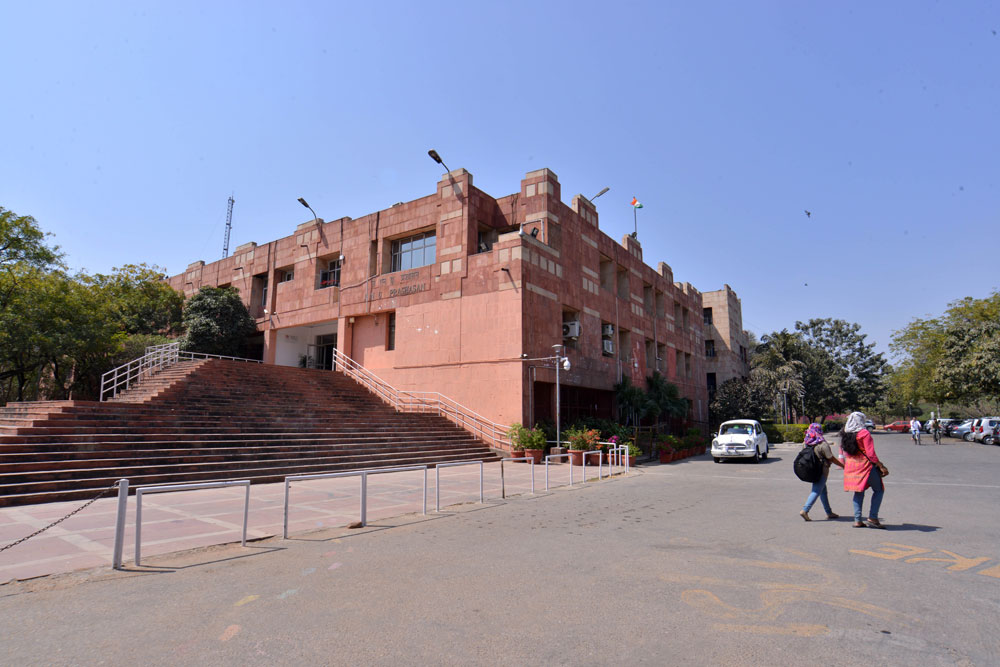A central team on Friday held a two-hour meeting with student leaders on the JNU campus to try and find ways to end a four-week-old student strike against higher hostel fees.
The three-member team had earlier this week met the deans and representatives of the teachers and the students’ union.
Several university officials have been gheraoed and administrative offices defaced during the agitation. The students have confronted the police several times, for which they face three FIRs.
In a memorandum to the central team, the students’ union opposed any differential fee structure, such as the administration’s offer of a rebate for boarders from “below poverty line” families — a term yet to be defined.
“Any differential fee structure also assumes that all citizens pay equal taxes for funding public education. However, the higher education cess ensures that citizens pay for public education in accordance to their income,” the students’ union said.
“Furthermore, differential fee structures assume a charitable attitude towards the functioning of institutions of higher education, as they infantilise adult citizens. Such structures inevitably assume that a student’s fees are paid solely by parents, and thus push adult citizens into indebtedness or the control of their families. For the same reason such a structure would make JNU’s unique policies of affirmative action (e.g. deprivation points for women) meaningless as it fails to recognise the multidimensional nature of deprivation.” More than half of JNU’s students are women.
The #FeesMustFall movement has received support from student groups elsewhere in India and even abroad. Among them are student groups from IIT Delhi and AIIMS, institutions that have repeatedly been cited on social media as more tranquil than and academically ahead of JNU.
The JNU students’ union blamed the varsity administration’s “fiscal mismanagement” for the fee hike.
“The JNU administration has cited the UGC (regulator) guideline (that) ‘all shortfalls in the non-salary expenditures should be met by using the internal receipts generated by the university’,” the students said.
“However, what the administration conveniently hides is the fact that there have been minimal new recruitments of contractual employees in JNU hostels in the recent past. Also, the UGC guidelines call for non-payment of outsourced staff under the salary head if prior approval from the UGC is not sought.”
All hostel presidents attended the meeting.
“The committee said they would submit their recommendations soon and asked if we had any ideas to rejig the fee structure,” students’ union president Aishe Ghosh told The Telegraph.
“We said we would do so only in the university’s appropriate bodies like the inter-hall administration as, unlike the VC, we respect the autonomy of the university and believe in the democratic process.”
A government source said a loan and alumni contributions were some of the solutions discussed at the meetings this week, and that there would be no further meetings.
The committee is expected to hand its report to the human resource development ministry early next week. Vice-chancellor M. Jagadesh Kumar, who has ignored an invitation from the committee, appealed to the teachers to ask the students to call off their strike.











